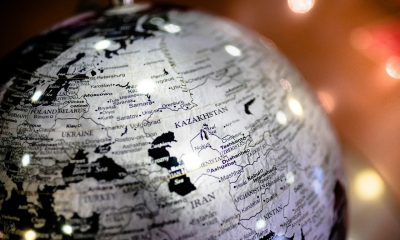Bielorusia
Alegerile #Belarus au provocat tulburări populare

 A few days after the presidential elections in Belarus, the country is in a state of instability and political vacuum. Official bodies declared a landslide victory of Lukashenko over his competitors, 80% against 10% for the housewife Tikhanovich, scrie Alexi Ivanov, Moscow correspondent.
A few days after the presidential elections in Belarus, the country is in a state of instability and political vacuum. Official bodies declared a landslide victory of Lukashenko over his competitors, 80% against 10% for the housewife Tikhanovich, scrie Alexi Ivanov, Moscow correspondent.
Opponents of the government, including Svetlana Tikhanovich herself, did not recognize these results and even challenged the election results in the Central election Commission controlled by Lukashenko. Svetlana Tikhanovich, fearing persecution and possible arrest, fled to Lithuania, where her children have already been living for their safety. Her husband is still a prisoner of conscience and is being held under arrest in Minsk.
After the announcement of official data on the results of the vote, according to the authorities, protest actions began across Belarus. They continue to this day, despite the unprecedented brutality of the authorities.
Lukashenko, who has ruled the country for 26 years as an African style dictator, is clinging to power with the last of his strength. In his opinion, all the protests are the result of external collusion and manipulation of Minsk's opponents. He blames Poland, the Czech Republic, Lithuania and, of course, Russia for the unrest.
Russia has long been the main factor of instability in Belarus, according to official authorities in Minsk. The scandal with the detention of 33 Russian citizens who were declared "mercenaries" in Minsk from the alleged private military company Wagner has long shaken the fragile and painful atmosphere of Russian-Belarusian relations. Minsk seems to have gone all-in-out to accuse Moscow of abandoning fraternal relations, which now according to Lukashenko, are of a pragmatic "partner" nature.
There are many reasons for such statements. The main point is that Minsk at a certain stage considered that Russia's insistent desire to unite with Belarus would lead to the complete loss of the latter's state sovereignty. Minsk, as you know, refused the possibility of such a Union, which is provided for by the Treaty on the creation of the Union state signed in 1999.
Belarus has been a beneficiary of Russia's generous economic and financial assistance for many years, but this has not been the basis for the prosperity of a country with very modest economic indicators.
Last year, Moscow eliminated subsidies for oil and gas supplies to Belarus, which caused hysteria in Minsk. Repeated attempts by Lukashenko to negotiate with Putin failed. Minsk announced multi-million dollar losses for the budget due to Moscow's actions. But the question hung in the air.
Returning to the elections in Belarus, it should be noted that the results of the vote were denounced by the majority of the EU and the USA. It is clear that the state machine totally controlled by Lukashenko could not produce any other result.
Unfortunately, we have to admit that the main victims in this situation are the patient and hard-working people of Belarus.
There is no doubt that with the help of special police forces, Lukashenko will suppress popular anger and make it endure for another 5 years. But what will become of the country?
Belarus has long been in international isolation and under sanctions. It is logical that the EU and the US will tighten these sanctions.
However, Minsk does not seem to be very upset about this. Putin congratulated Lukashenko on his election victory. This means that Minsk has a new chance to survive and continue its course.
But what will happen to the people of Belarus? Must the people still remain silent for the sake of the ghostly paradise promised by the chief?
Trimiteți acest articol:
-

 Conflictezile în urmă 4
Conflictezile în urmă 4Kazahstanul intervine: eliminarea diviziunii dintre Armenia și Azerbaidjan
-

 Extinderezile în urmă 4
Extinderezile în urmă 4UE își amintește de optimismul de acum 20 de ani, când 10 țări s-au alăturat
-

 Covid-19zile în urmă 4
Covid-19zile în urmă 4Protecție avansată împotriva agenților biologici: Succesul italian al ARES BBM - Bio Barrier Mask
-

 automobilismzile în urmă 4
automobilismzile în urmă 4Fiat 500 vs. Mini Cooper: o comparație detaliată

























